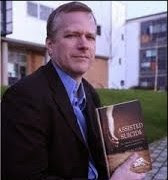Executive Director - Euthanasia Prevention Coalition
Petition supporting Bill C-418 to protect conscience rights (Link).
The debate began at: 5:30 pm on May 29, 2019 (Link to the Hansard of the debate). The video of David Anderson's speech is above.
The Liberals clarified the euthanasia law while the NDP came out against conscience rights Bill C-418.
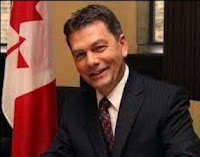 |
| David Anderson MP |
I am here today to speak to Bill C-418, which is the protection of freedom of conscience act. I need to point out again that I am surprised at the way this has caught on and caught the attention of the Canadian public. We should thank many Canadians and groups for whom this is an important issue for their work on publicizing and advancing conscience rights in Canada.
To begin to understand Bill C-418, we need to back up a bit. The Charter of Rights and Freedoms has a number of sections in it. Section 1, of course, guarantees our rights and freedoms. However, immediately following that is section 2, which declares the most fundamental rights, and that begins with freedom of conscience and religion. In 2015, the Carter decision in the Supreme Court said that although section 7 of the charter provides for the right to die, it also explicitly said that no one is required to participate in or be part of it.
We then came to Bill C-14, the government's assisted suicide bill. It is a bill that attracted much attention and controversy and laid out the groundwork for the first round of assisted suicide legislation in Canada. Whether they call it euthanasia, medically assisted dying or assisted suicide, they are all different names for the same thing. Medical practitioners were divided on the issue of participating in ending the lives of Canadians. Whether we supported Bill C-14 or not, it was clear that many within the medical community were very concerned. They did not and still do not want to participate in this activity.
When Bill C-14 was passed, it included subsection 241.2(9) which did say, “For greater certainty, nothing in this section compels an individual to provide or assist in providing medical assistance in dying.” That was not adequate because it did not lay out an offence, there was no framework for it and there was no penalty in Bill C-14 if someone violated that. It ended up being nothing more than a statement in Bill C-14.
While the Liberal talking points have repeated this, and the Liberals also claim that everyone has freedom of conscience and religion under section 2 of the charter, this is not the reality that medical personnel are facing across Canada. In spite of the fact that on the surface the charter, Carter and Bill C-14 supposedly agree, the reality is that physicians and medical personnel in this country are being pressured to participate in something with which they fundamentally disagree and there is no protection provided to them.
Conscience forms the basis of medical professionals' motivation to pursue their particular field. Doctors practise every day with the knowledge that it is their conscience that motivates them to test the limits of their knowledge and skill. Medical professionals know that patient care will suffer if they are deprived of the ability to live with integrity and to follow their consciences. They know the importance of these beliefs to them and their patients better than anyone else.
For a great many Canadian doctors, the core of their conscience prohibits their participation in taking a life. Indeed, many doctors remain devoted to the black and white of the ancient Hippocratic oath, a pledge that prohibits the administration of a poison to anyone. Through the availability of assisted suicide on demand across Canada, threats to conscience are no longer confined to the theoretical or to the rhetoric of the courtrooms. They are increasingly present in the examination room as well.
That is why I believe it is time to take action in defence of conscience rights that have stood the test of time for generations. Therefore, Bill C-418 seeks to amend the Criminal Code to do two things.
The first is to make it an offence to intimidate a medical practitioner, nurse practitioner, pharmacist or any other health care professional for the purpose of compelling them to take part, directly or indirectly, in the provision of physician-assisted suicide.
The second provision makes it an offence to dismiss from employment or to refuse to employ a medical practitioner, nurse practitioner, pharmacist or any other health care professional for the reason only that they refuse to take part, directly or indirectly, in the provision of physician-assisted suicide.
My bill would provide the teeth that Bill C-14 acutely lacks. The Liberals' attempt to provide protection for doctors consisted solely of a rudimentary clause, which stated, as I said earlier, that nothing compels someone to provide or assist. However, the provision lacked the teeth needed for its effective enforcement, as evidenced by the ongoing pressure that is being exerted on physicians, particularly by their regulating bodies.
I guess the question is whether these protections are really necessary, and I would say that they are. Throughout the legislative process, I have spoken to doctors who feel overt pressure to leave family medicine because of their conscientious beliefs. I have heard of palliative care doctors in Ontario who have stopped practising altogether. Nurses who feel increasingly bullied are choosing to shift their focus or retire early. I have had personal conversations with people who work in old folks' homes who explain they do not want to participate in this but are increasingly feeling pressured to do so. The pressure on these professionals exists and they are looking for relief.
What is more, regional associations such as the College of Physicians and Surgeons of Ontario have introduced regulations compelling conscientiously objecting physicians to participate by providing what they call “effective referrals” for physician-assisted suicide. A recent court decision has upheld this directive, contravening the assurances provided in Carter v. Canada and creating an even more urgent need among physicians for protection. This is in spite of the fact that in this situation in Ontario I am told that the majority of physicians support an allowance for conscientious objections, but the college has not taken that position.
As strange as it sounds, the recent court decision refers to the college's suggestion that if physicians do not like to participate then they can find other areas of medicine to take up. This is unusual, particularly in a situation where we have such a shortage of physicians and medical services. The college suggests that if they do not like participating they can take up things like sleep medicine, hair restoration, sport and exercise medicine, skin disorders, obesity medicine, aviation examinations, travel medicine or perhaps become a medical health officer.
For many of us across this country, particularly those of us in rural areas, we know there is an increasing lack of physicians in an increasingly challenged medical system. I find it passing strange that the college would be the one suggesting such a thing for its physicians. The answer does not have to be to do it, find someone else to do it or get out of medicine. Medical personnel and resources are scarce. Why would one try to force people into doing what they believe to be wrong? The example of the province of Manitoba and its conscientious objection legislation shows there does not need to be compulsion in the medical system when it comes to this issue.
My bill does not address the social acceptability of euthanasia and assisted suicide; that is not the point of it. Protecting physicians' conscience rights is not at all a physicians versus patients scenario. By protecting physicians' conscience rights, patients' rights are enhanced. Bill C-418 is about protecting the fundamental freedom of conscience and religion guaranteed to all Canadians in the Charter of Rights and Freedoms.
Parliamentarians from all parties cannot ignore the groundswell of support this bill has received from average Canadians who believe it is time to stand up for doctors and health care providers who are not willing to leave their core ethics behind when they are at a patient's bedside. This is not theoretical. I have had photos sent to me of the revolving TV screens that we see in hospital wards, with pictures of what seems to be a physician's hand gently resting on the arm of a senior citizen, touting assisted suicide as a medical service whereby physicians or nurse practitioners help patients fulfill their wish to end their suffering and a phone number is provided. Interestingly, it makes no mention of palliative care or other ways to reduce pain and suffering. It makes no mention of access to counselling.
With government, the courts and health care facilities promoting access as a right, should not those who object be allowed to have that fundamental freedom of conscience that is so important?
I want to close with a quote from “The Imperative of Conscience Rights” by the CRFI. They write:
The outcomes of the current controversies that engage freedom of conscience will not only signal the extent to which Canadians can conscientiously participate in public life—in other words, whether they can live in alignment with who they are and what they stand for in matters of morality. These outcomes will also speak volumes about who we are and what we stand for—as a society. Suppressing beliefs with which we disagree or that we find offensive in the name of tolerance and liberalism is a contradiction in terms. The fact that the state has deemed something legal does not remove a person’s freedom to express her moral opposition to it. This freedom is not absolute, but its roots—integrity, identity, and dignity—are necessary for human flourishing. These roots must therefore be top of mind whenever limitations on freedom of conscience are proposed. We believe that governments should only limit this human right if there is a compelling justification.
 |
| Scott Sims MP (Lib) |
David Anderson (MP) (CPC) responded that the Ontario Medical Association supported conscience rights but that the policy requiring physicians to do an "effective referral" was from the College of Physicians and Surgeons of Ontario (CPSO). Mr Anderson then explained that the province of Manitoba has legislated conscience rights for healthcare professionals.
 |
| Murray Rankin MP |
David Anderson MP (CPC) responded: I believe that we can. It has been done in other places across the country, but there are numerous ways that people can come to information about assisted suicide or medical assistance in dying. There are certainly a number of options open as to how they might access that information. The question is whether physicians are obligated to refer that, to provide that, or if they can opt out and give them another way to find that information. We believe that is very possible.
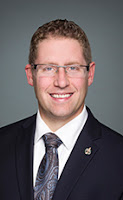 |
| John Nater MP |
Mr Anderson MP (CPC) responded:
Madam Speaker, the interest in this bill has been surprising to me... It has been surprising to me how people have taken this on. There is an onslaught of petitions coming into my office every day and I am passing them on to my colleagues as well so that they can understand the interest that people in their ridings have in this issue.
People generally want to be fair to other people and allow them to have the capacity to operate off of the things they believe in. Every single one of us has a set of beliefs. We have a right to operate under our set of beliefs ... In this situation, we should be giving medical professionals, who operate every day from a sense of conscience in what they do, the opportunity to do that.
 |
| Rob Oliphant MP |
Mr Anderson MP (CPC) responded:
Madam Speaker, as I mentioned earlier, there are a number of options for people to find the information they need. There are many doctors and facilities that will provide this service if they want it, but there are other doctors and medical personnel who do not feel that assisting in someone's premature death is a part of the mandate of what they have been called to as physicians or medical personnel.
There are enough choices out there that people can have and we can allow those who disagree with this procedure to have their freedom of conscience and be able to live their professional lives in that fashion.
 |
| Arif Virani MP |
Madam Speaker, it is a pleasure to speak today to Bill C-418, the protection of freedom of conscience act. The bill proposes to create two new Criminal Code offences, an “intimidation offence” as well as an “employment sanctions offence”. Those offences would seek to protect health care professionals' freedom of conscience by prohibiting the use of intimidation to compel practitioners to provide medical assistance in dying and by prohibiting employers from dismissing practitioners for refusing to take part in medical assistance in dying.
...Providing medical assistance in dying is a gesture with the most serious of consequences. Some health care practitioners view it as an important part of their practice that relieves a patient’s intolerable suffering when approaching death. Others view it as contrary to their conscience, religious beliefs or their professional role. Other health care practitioners might support the availability of medical assistance in dying in principle but simply not wish to be involved in the practice themselves. Our government supports and respects all of these different viewpoints.
...With the utmost clarity in this regard, the House of Commons Standing Committee on Justice and Human Rights adopted an amendment to what was then Bill C-14, adding a new subsection 241.2(9) to the Criminal Code of Canada that clearly states that nothing in the medical assistance in dying provisions compels health care professionals or practitioners to participate in medical assistance in dying.
It is also critically important, since we are debating constitutional law, to keep in mind that paragraph 2(a) of the charter protects freedom of conscience and religion and guards against unjustified government interference in one's religious beliefs and freedom of conscience. We know that. The law reflects that. The Carter decision of the Supreme Court of Canada incorporated that. I will read part of paragraph 132 of the majority decision in Carter, which says that “nothing in the declaration of invalidity which we propose to issue would compel physicians to provide assistance in dying”. Those words entered Bill C-14 and were further strengthened by the amendment proposed by the justice committee and voted on in Parliament.
(Bill C-418 recognizes that C-14 stated that nothing compels health care professionals or practitioners to participate in medical assistance in dying, the question at hand is what constitutes participation.)
Arif Virani MP (LIB) then referred to the regulations that were instituted by the Minister of Health on November 1, 2018 and the five year review of the euthanasia law that will begin in June 2020.
 |
| Murray Rankin MP |
Rankin explained that the NDP oppose Bill C-418. He stated:
We must oppose this bill. We are concerned that it creates a loophole whereby health professionals could deny a referral to a patient seeking medical assistance in dying
...However, what is equally important is that there be the ability, always, for the patient to exercise his or her constitutional right to avail themself of medical assistance in dying. In a contest between a physician and that patient, the law is crystal clear. It is the patient's right that must prevail. I will come back to that in a moment
...In a recent Ontario Court of Appeal decision in 2019, a judge found that the rights of the patient must prevail over the rights of the physician. There must be what the Ontario court terms an “effective referral”
...We believe that coercion and intimidation are always wrong. However, it is important we keep the balance that was carefully struck in this Parliament when we took the step of creating a regime for Canadians to avail themselves of their constitutional right to medical assistance in dying in certain circumstances. We should keep that balance and not destroy it.
(In other words, the NDP believe that coercion and intimidation are always wrong except when it comes to forcing doctors to participate in euthanasia.)
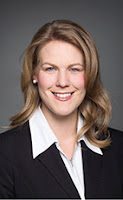 |
| Rachel Harder MP |
While Bill C-14, the bill that makes medical assistance in dying legal within our country, advocates for those wishing to participate in the practice, it neglects or altogether fails to protect the medical practitioners whose conscience would be violated if they had to participate. This is a big problem as the professional judgment of many doctors still affirms that good medical care does not include hastening death.
...the current government outright refused to put conscience protections within the federal legislation. This was despite the fact that many witnesses came forward to committee during this time and asked for conscience protections to be explicitly placed within Bill C-14.
I sat there during those committee meetings and listened to that testimony. I was one of the individuals who advocated for those conscience protections. There is absolutely no reason why they should not have been a part of the legislation. However, they are not, so it requires this private member's bill, Bill C-418, in order to adequately protect the conscience of our medical practitioners in the Canadian system.
...Canadians should never be put in a situation where they feel they are forced to choose between their careers or beliefs. We live in Canada. We have a Charter of Rights and Freedoms. We should be able to engage in the career of our choice and have our ethical and moral values respected. We should be able to function according to our conscience. Currently, that is not the case. Those protections are not granted to medical practitioners the way they should be. Therefore, I call on the House to make a change, as is the member who sponsored this private member's bill.
..Bill C-418 would restore such freedom of religion and conscience. It acts to defend medical professionals who act in good conscience and within their constitutional rights to not participate in medical assistance in dying. It should be argued that this bill addresses a legislative gap that was left by the current government. It completes the work the Supreme Court asked this place to do.
...In 2016, the College of Physicians and Surgeons of Ontario adopted a medical assistance in dying policy requiring medical professionals, who would not provide medical assistance in dying themselves, to provide an effective referral. This policy was challenged by religious groups.
A group of more 1,500 Canadians came together and challenged this regulatory decision. They said that it violated their constitutional rights, their rights to freedom of religion and conscience. Unfortunately, on May 15, the Court of Appeal for Ontario ruled that religious physicians and medical professionals must provide effective referrals if they themselves would not be involved with medical assistance in dying. It went on to say that those medical practitioners who believed this violated their conscience could go and find a job within the medical profession where medical assistance in dying would not be required of them.
That is incredibly demeaning to those individuals who have gone through years of training and who, with great dedication and commitment to their patients, have served. These are the women and men who have been trained as medical professionals and it is their conscience that motivates them and compels them to function with dignity, respect and honour and to provide the utmost level of care to their patients. Now they are being punished for holding those beliefs, for holding that level of dignity, respect and honour for their patients.
Again, I would plead that it does not have to be this way, that a change can be made to the Criminal Code that would in fact protect the conscience rights of these medical practitioners who, because of their deeply-seeded beliefs, are not able to participate in any way in medical assistance in dying.
I ask that the House rightly respond to the Supreme Court's decision in the Carter v. Canada case and put this change within the Criminal Code to rightly respond to that decision.
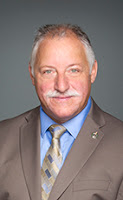 |
| Darrell Samson MP |
There has also been some independent research conducted in Canada. One study, which is entitled “Exploring Canadian Physicians' Experiences Providing Medical Assistance in Dying: A Qualitative Study”, found that, in some cases, providers who participate in medical assistance in dying reported that it negatively affected their working relationships with colleagues. This finding is just as alarming as the prospect that practitioners would be physically threatened in order to coerce them into participating.
I ask members of this chamber, and all Canadians, to be respectful of the beliefs, values and perspectives held by others, even when they differ vastly from their own opinions. There is no single right answer when values collide. Our way forward must be a journey in which we engage, listen and try to accommodate, not threaten or provoke conflict.
I am pleased that Bill C-418 again gives us an opportunity to discuss medical assistance in dying and also focus on the vital importance of respecting differences and diversity. I urge all members to approach this bill and ongoing public and policy debates on medical assistance in dying with open minds.
 |
| Keith Lamoureux MP |
I was listening to the parliamentary secretary responsible for the legislation providing comment on the government's official position on the issue. I believe that the concerns the member opposite has, in good part, are addressed by the legislation we passed not that long ago.
May 29 was the first hour of debate on Bill C-418. A second hour of debate will be scheduled before Bill C-418 can do to a vote.








